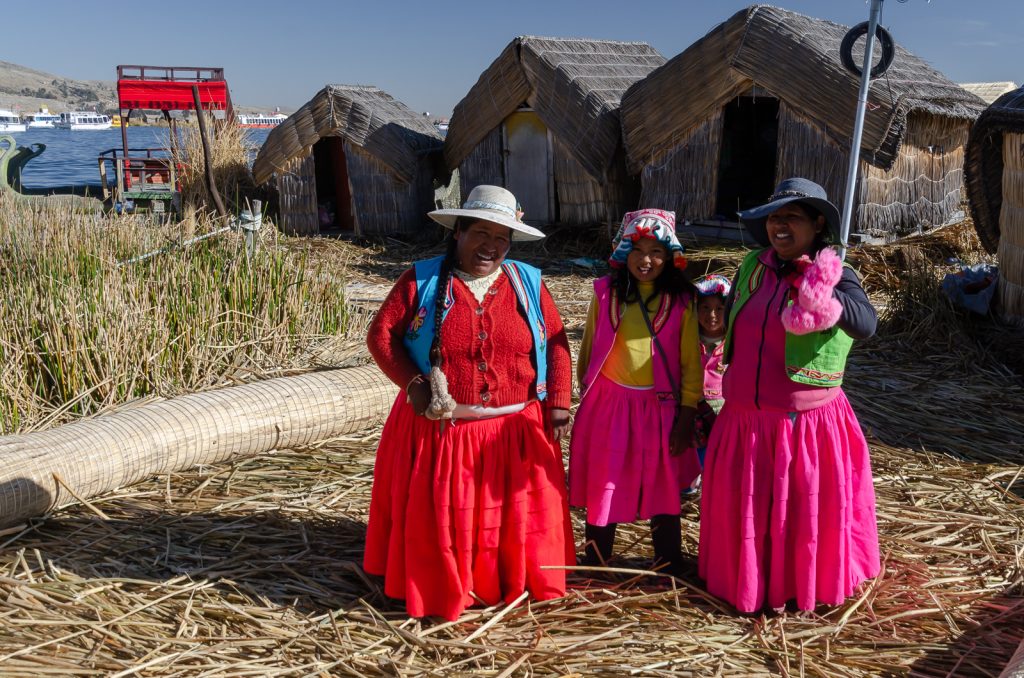
Except for lake-fishing, the career paths that lie open to the people of Uros are limited on the islands. They could go ashore, but many inevitably find that when working onshore, it is easier to live onshore – and leave the islands.
Once or twice a day, the peace of the lake is broken by tourist boats, and loud, gullible foreigners pour onto the islands.
Demonstrations on how to make an island are given, souvenirs are sold, and rides in ‘traditional’ boats are offered. Some islands also have restaurants and B&Bs.
It is hectic on the islands while this goes on. It is possible to understand the point of view of people who after an hour of this chaos dismisses the Uros as a commercial hell-hole.
Visitors are going to feel bad about not buying the stuff that the big-eyed and colourfully dressed Uros-people are displaying. The islanders know this, and they also know that by making you feel just a little bit worse, you may buy something.
But this is a game. You should, of course, buy something. The islanders should be left with some reward for the trouble of having you. It would, however, have felt better if this was included in the tour. That is not the nature of things in Puno.
Looking past that, the Uros Islands remain unique. They may not be life-altering but exciting nonetheless. I, for one, am happy to have been there.
Stepping from the boat and onto a floating island is a peculiar feeling. You are standing on something that is not entirely solid, nor yet do you sink through.
There are many tiny islands. Each one is surrounded by water, and to visit your neighbour or school, you must use a boat. The school also happens to be floating.
As a bonus, the Uros Islands also sit in a spectacularly beautiful natural setting. Brace yourself for the onslaught of sales, but go. Next time—if I’m lucky enough that there’ll be one—I’ll stay overnight.
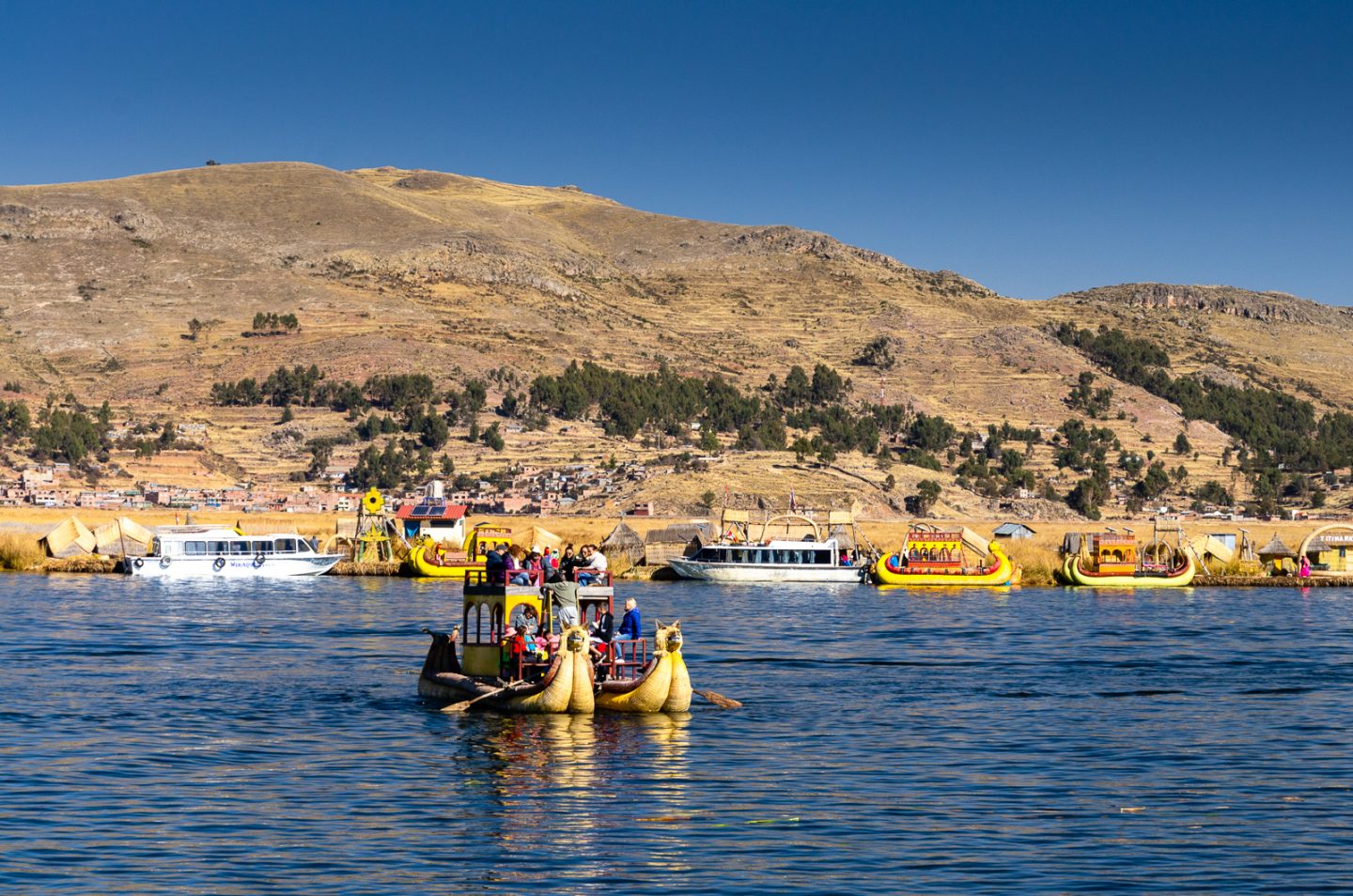
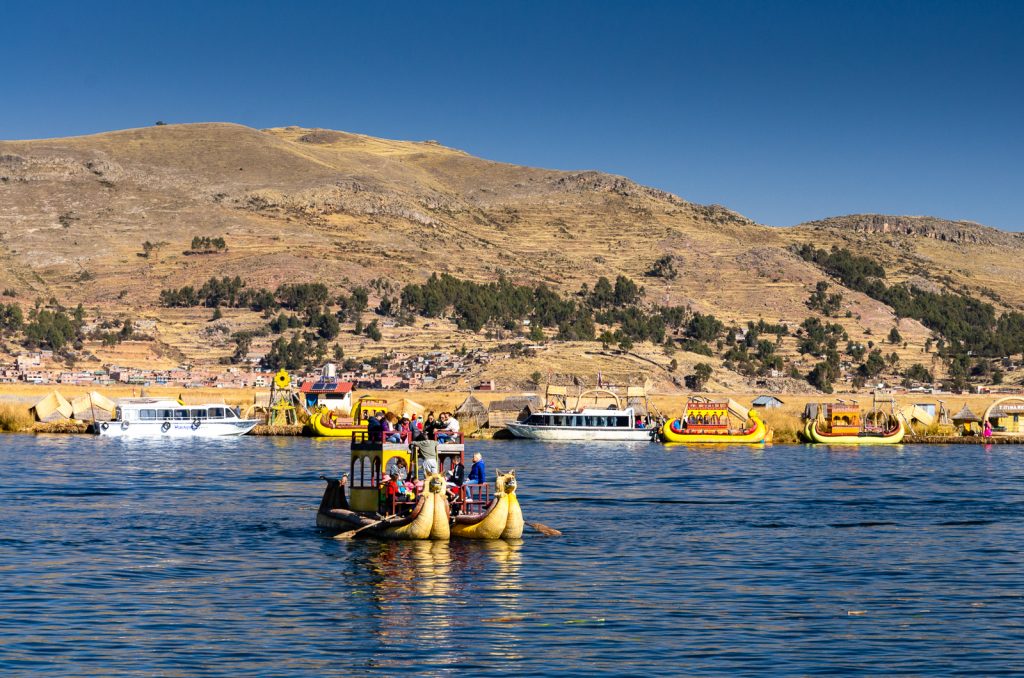
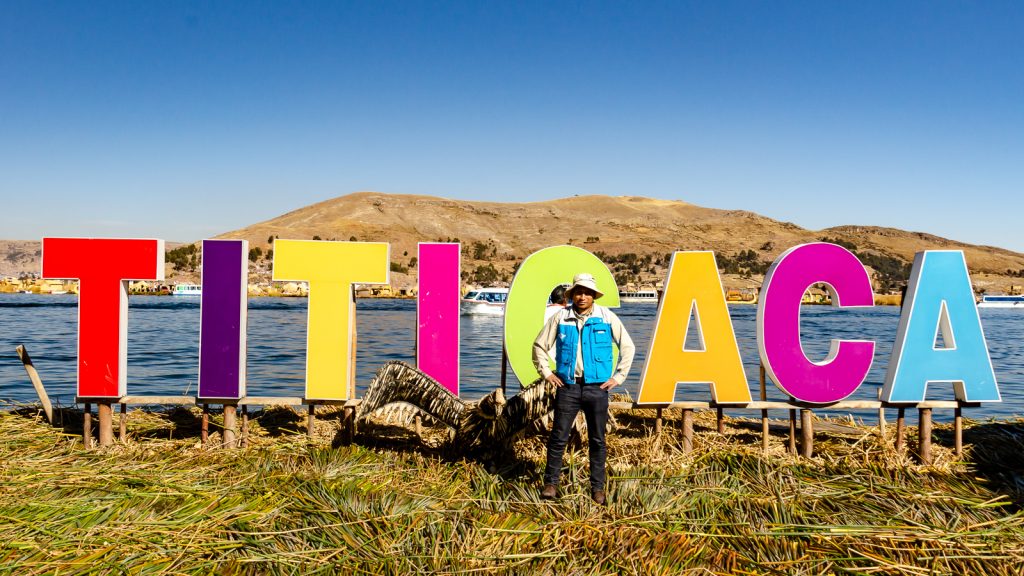
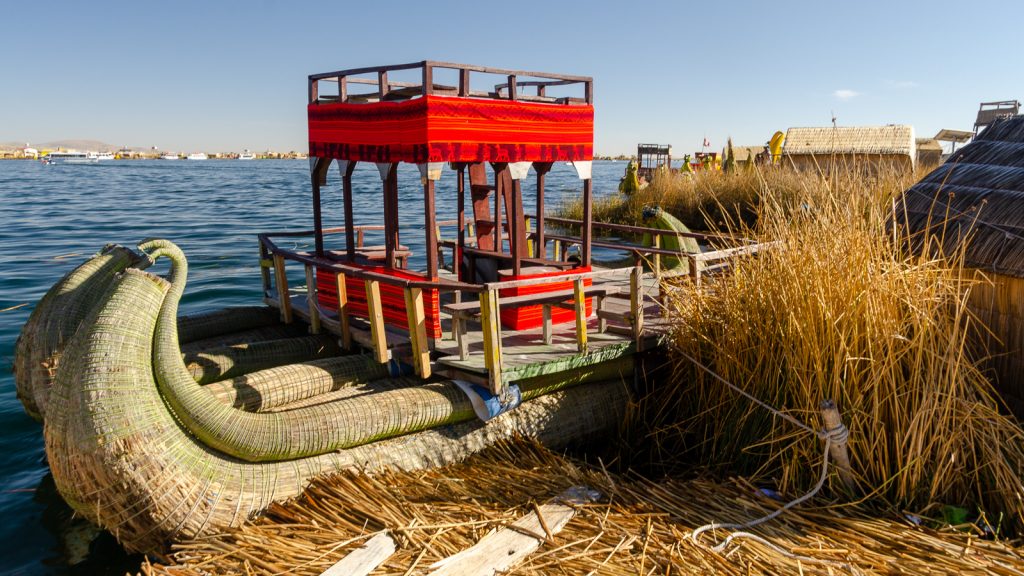
Comments are closed